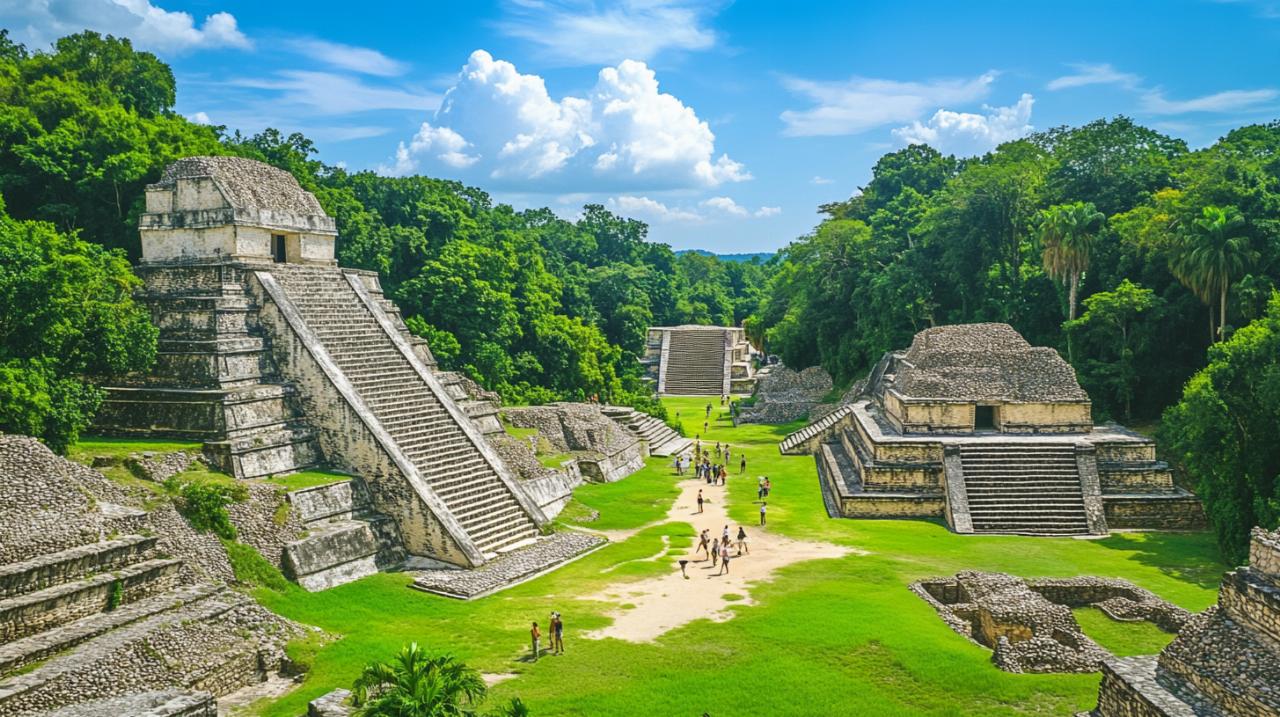The rural tourism sector presents unique opportunities and challenges that require specialist insight to navigate successfully. As countryside ventures increasingly seek to attract visitors whilst preserving their authentic character, the role of a tourism consultant has become indispensable. These professionals bridge the gap between traditional hospitality knowledge and the specific demands of rural environments, offering tailored guidance that respects both commercial objectives and community values.
Understanding the Tourism Consultant's Remit in Rural Settings
Core responsibilities and professional scope
A tourism consultant serves as an expert advisor who works alongside businesses operating within the travel and tourism industry to enhance their competitive positioning. These specialists bring comprehensive knowledge across multiple disciplines, from strategic planning and market research to destination management and sustainable tourism development. Their remit extends far beyond simple recommendations, encompassing the creation of detailed roadmaps that guide businesses through complex industry challenges. Consultants typically engage in client consultation to understand specific needs, conduct thorough analyses of current operations, and develop bespoke solutions that align with both immediate priorities and long-term aspirations. They also provide training and coaching to staff members, ensuring that teams possess the skills necessary to implement recommended strategies effectively. Project management forms another crucial element of their work, particularly when overseeing the development of new attractions or the revitalisation of existing facilities. The professional scope of tourism consultants has expanded significantly in recent years, with many now specialising in areas such as regenerative tourism, climate challenges adaptation, and digital disruption mitigation.
How rural tourism differs from traditional consultancy
Rural tourism consultancy demands a distinct approach compared to work in urban or resort settings. Countryside ventures operate within tighter community networks where authenticity and local supply chains matter profoundly to both residents and visitors. Unlike conventional tourism environments, rural settings require consultants to balance economic growth with ecosystem preservation and community development goals. Overcrowding presents different challenges in rural contexts, where infrastructure limitations and environmental sensitivities mean that visitor management must be particularly thoughtful. Consultants working in these areas must understand how to create authentic experiences that showcase local culture without commodifying it, whilst simultaneously ensuring that economic benefits flow directly to rural communities rather than leaking to external operators. The relationship between tourism and agriculture, land management, and traditional crafts becomes paramount in rural consultancy, requiring advisors to possess knowledge that extends beyond conventional hospitality frameworks. Additionally, rural enterprises often face funding opportunities and challenges distinct from those encountered by urban businesses, necessitating consultants who understand how to access grants, regional development programmes, and sustainable tourism initiatives specifically designed for countryside ventures.
Essential Services Provided by Tourism Consultants for Countryside Ventures
Strategic development and market positioning
Strategic planning forms the cornerstone of effective tourism consultancy, particularly for rural businesses seeking to carve out distinctive positions in increasingly competitive markets. Consultants help countryside ventures identify their unique selling propositions, whether these relate to landscape, heritage, artisanal traditions, or experiential offerings that cannot be replicated elsewhere. This process involves comprehensive market research to understand current trends, visitor demographics, and emerging opportunities within the rural tourism segment. The travel market continues to expand significantly, with projections indicating substantial growth in coming years, yet many rural businesses struggle to capture their fair share without expert guidance. Tourism consultants assist in developing marketing expertise that resonates with target audiences, crafting narratives that appeal to visitors seeking genuine connections with place and people. They also advise on booking optimisation strategies and revenue growth tactics specifically calibrated to the seasonality and capacity constraints typical of rural operations. Beyond immediate commercial concerns, consultants help businesses align with broader industry movements, ensuring that rural ventures remain relevant as traveller expectations evolve. This includes guidance on adapting to technological innovations whilst maintaining the personal touch that distinguishes countryside hospitality from standardised hotel consultancy approaches.
Sustainable practices and community integration
Sustainability has transitioned from optional consideration to fundamental requirement, with tourism consultants now playing a vital role in helping rural businesses implement practices that genuinely reduce environmental impact rather than merely engaging in greenwashing. Consultants conduct sustainability audits that examine energy consumption, waste management, water usage, and carbon footprints, then develop practical action plans for improvement. These professionals understand how to align business operations with Sustainable Development Goals, ensuring that rural tourism ventures contribute positively to broader environmental and social objectives. Community integration represents another critical area where consultants add value, helping businesses establish partnerships with local suppliers, artisans, and service providers to create economic multiplier effects within rural areas. They advise on local employment strategies that build workforce capacity whilst respecting traditional lifestyles and seasonal patterns. Consultants also guide businesses in developing resilience planning frameworks that prepare rural ventures for various disruptions, from pandemic preparedness to extreme weather events increasingly associated with climate change. Gender inclusion initiatives, support for post-conflict tourism recovery in affected regions, and protected area tourism development all fall within the expanding scope of consultant expertise. By helping rural businesses implement these practices authentically, consultants enable countryside ventures to appeal to the growing segment of travellers who make accommodation and activity choices based on demonstrated sustainability credentials.
Selecting the Right Tourism Consultant for Your Rural Enterprise
Key Credentials and Industry Experience to Look For
 Choosing an appropriate tourism consultant requires careful evaluation of credentials, practical experience, and demonstrated success in rural contexts. Prospective clients should seek professionals with substantial industry experience, ideally spanning multiple years and diverse project types within countryside settings. Certifications from recognised hospitality and tourism bodies provide useful indicators of professional standards, though practical achievements often matter more than academic qualifications alone. A consultant's track record in similar projects offers valuable insight into their capabilities, so requesting case studies and client testimonials becomes essential during the selection process. Look for evidence of successful outcomes such as increased visitor numbers, improved booking rates, enhanced community benefits, or successful funding applications that the consultant has facilitated for previous rural clients. Geographical knowledge relevant to your specific location matters considerably, as consultants familiar with regional characteristics, visitor patterns, and local governance structures will require less orientation time and can provide more immediately applicable advice. Problem-solving abilities become apparent through discussions about previous challenges and how the consultant navigated them, revealing both technical competence and creative thinking. Networking capabilities also warrant consideration, as well-connected consultants can facilitate introductions to potential partners, funding bodies, and industry contacts that might otherwise remain inaccessible to rural enterprises.
Choosing an appropriate tourism consultant requires careful evaluation of credentials, practical experience, and demonstrated success in rural contexts. Prospective clients should seek professionals with substantial industry experience, ideally spanning multiple years and diverse project types within countryside settings. Certifications from recognised hospitality and tourism bodies provide useful indicators of professional standards, though practical achievements often matter more than academic qualifications alone. A consultant's track record in similar projects offers valuable insight into their capabilities, so requesting case studies and client testimonials becomes essential during the selection process. Look for evidence of successful outcomes such as increased visitor numbers, improved booking rates, enhanced community benefits, or successful funding applications that the consultant has facilitated for previous rural clients. Geographical knowledge relevant to your specific location matters considerably, as consultants familiar with regional characteristics, visitor patterns, and local governance structures will require less orientation time and can provide more immediately applicable advice. Problem-solving abilities become apparent through discussions about previous challenges and how the consultant navigated them, revealing both technical competence and creative thinking. Networking capabilities also warrant consideration, as well-connected consultants can facilitate introductions to potential partners, funding bodies, and industry contacts that might otherwise remain inaccessible to rural enterprises.
Evaluating cultural fit and communication approach
Beyond technical qualifications, the working relationship between consultant and client fundamentally determines project success, making cultural fit and communication style critical selection factors. Rural businesses often operate with distinct values and decision-making processes compared to corporate tourism entities, requiring consultants who respect these differences and adapt their approach accordingly. Customer service orientation in consultancy manifests through responsiveness, willingness to explain complex concepts clearly, and genuine interest in understanding the specific context of each rural enterprise. Communication skills encompass both the ability to articulate recommendations persuasively and the capacity to listen carefully to client concerns, local community perspectives, and staff insights. The best consultants balance professional expertise with humility, recognising that rural business owners and community members possess invaluable knowledge about their own environments that must inform any successful strategy. Assess whether potential consultants demonstrate ability to translate between different stakeholder languages, bridging donor requirements, business objectives, and local voices effectively. Consider the consultant's availability and working style, ensuring these align with your operational rhythms and decision-making timelines. Some rural businesses benefit from hands-on consultants who provide practical implementation support, whilst others prefer advisors who develop strategies for internal teams to execute. Clarifying expectations about ongoing support, training provision, and knowledge transfer helps ensure that the consultancy relationship delivers lasting value rather than creating dependency.
Maximising value from your tourism consultancy partnership
Setting clear objectives and measurable outcomes
Successful consultancy engagements begin with explicit agreement on objectives and performance metrics that will define success. Rural tourism businesses should articulate specific goals they wish to achieve, whether these involve visitor number targets, revenue thresholds, sustainability benchmarks, or community impact indicators. Clear objectives enable consultants to design focused interventions rather than providing generic advice of limited practical value. Measurable outcomes might include quantifiable metrics such as percentage increases in direct bookings, reductions in operational costs, improvements in customer satisfaction scores, or numbers of local suppliers integrated into business operations. For sustainability-focused projects, appropriate measures could encompass carbon reduction achievements, waste diversion rates, or proportions of locally-sourced products. Community development objectives require metrics such as local employment numbers, training programmes delivered, or collaborative initiatives established with neighbouring businesses and organisations. Risk management improvements can be assessed through documented contingency plans, insurance coverage enhancements, or staff preparedness for various disruption scenarios. Establishing baseline data before consultancy commences allows accurate assessment of progress and demonstrates the tangible business growth consultants facilitate. Regular review meetings throughout the engagement ensure that projects remain on track and allow adjustments when circumstances change or unexpected opportunities arise.
Long-term Benefits and Return on Investment
Whilst consultancy fees represent upfront expenditure, the long-term benefits and return on investment typically far exceed initial costs when engagements are well-structured and properly implemented. Rural tourism ventures that work with skilled consultants often experience competitive advantages that compound over time, from enhanced reputation and customer loyalty to operational efficiencies that reduce ongoing costs. The knowledge transfer that occurs during consultancy projects builds internal capability, enabling businesses to tackle future challenges more confidently without external assistance. Strategic positioning developed through consultancy helps rural enterprises weather economic fluctuations and industry disruptions more effectively than competitors operating without expert guidance. Sustainability improvements frequently generate both cost savings through resource efficiency and revenue premiums from environmentally-conscious travellers willing to pay more for demonstrably responsible operators. Enhanced community relationships fostered through consultant-guided integration strategies often yield unexpected benefits, from reduced operational friction to collaborative marketing opportunities that amplify reach beyond individual business capacity. Access to funding opportunities identified and secured through consultant expertise can transform business trajectories, enabling investments in infrastructure, technology, or capacity expansion that would otherwise remain unaffordable. The typical consultant remuneration, whether project-based fees or ongoing retainers, should be evaluated against these multiple benefit streams rather than viewed as isolated costs. Rural businesses that approach consultancy as strategic investment rather than discretionary expense position themselves to thrive within an increasingly sophisticated and demanding tourism landscape where professional guidance has become essential for sustainable success.







